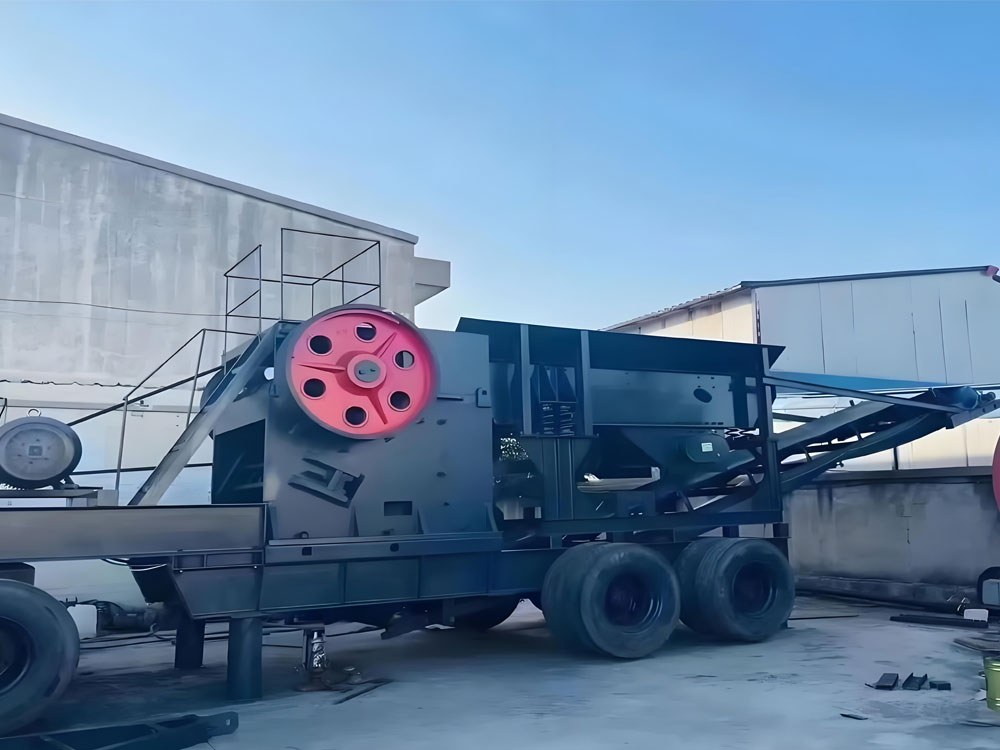Mobile Crushers for Efficient Waste Management
In an era where sustainability and resource efficiency dominate global conversations, industries are seeking innovative solutions to manage waste responsibly. Mobile crushers have emerged as a game-changing technology in waste management, offering unparalleled flexibility, cost savings, and environmental benefits. This article explores how mobile crushers optimize waste processing, reduce landfill dependency, and contribute to a circular economy—all while meeting modern operational demands.
The Growing Challenge of Waste Management
Global waste generation is projected to reach 3.4 billion tons annually by 2050, with construction, demolition, and industrial sectors contributing significantly. Traditional waste disposal methods, such as landfilling or stationary crushing plants, often fall short in terms of efficiency, cost, and environmental impact. Mobile crushers address these challenges head-on by enabling on-site processing, reducing transportation costs, and transforming waste into reusable materials.
What Are Mobile Crushers?
Mobile crushers are compact, portable crushing machines designed to process materials like concrete, asphalt, bricks, and natural stones directly at the source. Equipped with advanced crushing mechanisms, these units can be easily transported to construction sites, demolition projects, or recycling facilities. Key features include:
- Mobility: Track-mounted or wheeled designs for rapid relocation.
- Versatility: Ability to handle diverse materials, from soft debris to hard aggregates.
- Automation: Smart controls for optimized crushing performance.

5 Key Benefits of Mobile Crushers in Waste Management
1. On-Site Processing Reduces Costs & Emissions
Transporting waste to distant disposal sites is expensive and carbon-intensive. Mobile crushers eliminate the need for long-haul trips by processing materials directly at the source. This cuts fuel costs, lowers CO2 emissions, and minimizes traffic disruptions.
2. Transform Waste into Valuable Resources
Mobile crushers convert demolition waste (e.g., concrete, bricks) into high-quality recycled aggregates. These materials can replace virgin resources in new construction projects, reducing the demand for mining and quarrying.
3. Space Efficiency & Flexibility
Unlike stationary plants, mobile crushers require minimal setup space. Their compact design allows operation in tight urban areas or remote sites, making them ideal for temporary projects or confined workspaces.
4. Enhanced Operational Efficiency
Modern mobile crushers feature real-time monitoring systems and adjustable settings to optimize output size and throughput. Operators can switch between materials quickly, reducing downtime and maximizing productivity.
5. Compliance with Environmental Regulations
By diverting waste from landfills and promoting recycling, mobile crushers help businesses comply with stringent environmental regulations and sustainability certifications like LEED or BREEAM.
Applications of Mobile Crushers in Waste Management
- Construction & Demolition (C&D) Waste: Crushing concrete, tiles, and asphalt for reuse in road bases or foundations.
- Mining & Quarrying: Processing overburden or mineral waste on-site.
- Disaster Cleanup: Rapid deployment to clear debris after natural disasters.
- Municipal Solid Waste (MSW): Sorting and crushing mixed waste streams for recycling.
Choosing the Right Mobile Crusher
When selecting a mobile crusher, consider:
- Material Type: Jaw crushers for hard materials, impact crushers for softer debris.
- Capacity Requirements: Throughput (tons per hour) and final product size.
- Fuel Efficiency: Hybrid or electric models for greener operations.
- After-Sales Support: Maintenance services and spare part availability.
Case Study: Reducing Landfill Waste by 80%
A UK-based demolition company integrated mobile crushers into its operations, achieving:
- 80% reduction in landfill-bound waste.
- 40% cost savings on waste transportation.
- Increased revenue by selling recycled aggregates to local construction firms.
The Future of Waste Management: Smart & Sustainable
As technology advances, mobile crushers are becoming smarter. Innovations like AI-driven optimization, IoT connectivity, and solar-powered units are paving the way for zero-waste job sites. Governments and corporations alike are incentivizing recycling infrastructure, making mobile crushers a strategic investment for forward-thinking businesses.
Conclusion: Embrace the Mobile Crushing Revolution
Mobile crushers are no longer a niche solution—they’re a cornerstone of efficient waste management. By adopting this technology, industries can slash costs, meet sustainability goals, and unlock new revenue streams from recycled materials. Whether you’re a contractor, recycler, or municipal authority, integrating mobile crushers into your waste management strategy is a step toward a cleaner, more resource-efficient future.
- > Advantages of Mobile Jaw Crushers in Construction Waste Recycling
- > Gravel Impact Crusher for Concrete Aggregates: Enhancing Construction Efficiency
- > How to Adjust Jaw Crusher Discharge Size to 0-50mm
- > Choosing the Best Jaw Crusher for Your Indonesia Limestone Crushing Project
- > Introduction to Iron Ore Beneficiation Process: 70 Tons per Hour Mobile Impact Crushing Plant
- > Versatile Mobile Vibrating Screen for Rock Crusher Applications
- > User-Friendly Hydraulic Cone Crusher: Enhancing Efficiency and Ease of Use
- > Advantages of Vertical Shaft Impact (VSI) Crushers in Manufactured Sand Production Lines


Online




Message
